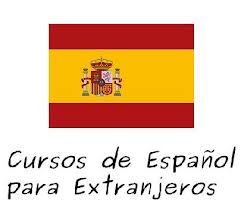Expat: Expatriate. A person who lives outside their native country (Oxford Dictionaries, online). Short for expatriate, which comes from the Latin ex patria, meaning out of the homeland.
Immigrant: A person who comes to live permanently in a foreign country (Oxford Dictionaries, online).
I can’t see a difference in the definitions, at all. And yet the words appear to be used very differently. In Spain I have once heard a Dutch woman describe herself as an immigrant, but with that single exception I have only heard European immigrants to Spain describe themselves as expats.
Yet those same people, often British, DO use the word “immigrant”, and often derogatively, about people from other countries who have moved to Britain.  Indeed I have frequently heard long rants about “immigrants moving in, living together in clusters, opening their own shops and businesses to cater for each other, and not learning to speak the language”. Those complaints could very easily be from Spanish people, bemoaning the anglicisation of stretches of the coast, but they aren’t. They’re from British people criticising groups of expats from other countries, settling in Britain. Yet have those British immigrants to Spain not done exactly the same? Often in even greater density on their golf resorts and urbanisations, and with even less willingness to learn the language?
Indeed I have frequently heard long rants about “immigrants moving in, living together in clusters, opening their own shops and businesses to cater for each other, and not learning to speak the language”. Those complaints could very easily be from Spanish people, bemoaning the anglicisation of stretches of the coast, but they aren’t. They’re from British people criticising groups of expats from other countries, settling in Britain. Yet have those British immigrants to Spain not done exactly the same? Often in even greater density on their golf resorts and urbanisations, and with even less willingness to learn the language?
 More than three million Brits live abroad, more than from any other European country. The country that takes the most British immigrants is, not surprisingly, Spain. The Office for National Statistics reports that in 2010, 350,000 Brits emigrated, while 216,000 people emigrated from other countries to Britain.
More than three million Brits live abroad, more than from any other European country. The country that takes the most British immigrants is, not surprisingly, Spain. The Office for National Statistics reports that in 2010, 350,000 Brits emigrated, while 216,000 people emigrated from other countries to Britain.
At some point it appears that the word “immigrant”, which means nothing more than a change from original location, has come to have negative connotations amongst some people. At that point, those who perceive the word as negative, needed to use a different word to describe themselves.
Surely the two words are interchangeable? Expat or immigrant?  I remember the library in a town in Córdoba province offering “English Classes for Immigrants”. Many British immigrants didn’t attend, as they understood the word to mean that the classes were targeted only at African seasonal workers (who made up the bulk of attendees – until the olive harvest began!). So to turn that around, I wonder whether those African workers would feel welcome at a lunch event or a coach trip publicised as being for expats? Yet both words clearly include everyone living outside their original homeland.
I remember the library in a town in Córdoba province offering “English Classes for Immigrants”. Many British immigrants didn’t attend, as they understood the word to mean that the classes were targeted only at African seasonal workers (who made up the bulk of attendees – until the olive harvest began!). So to turn that around, I wonder whether those African workers would feel welcome at a lunch event or a coach trip publicised as being for expats? Yet both words clearly include everyone living outside their original homeland.
 Perhaps we should leave the last word to our hosts, the Spanish? To them we are all “extranjeros” – foreigners. As far as I can understand, there is no differentiation by the Spanish between foreigners from different parts of the world or from different racial backgrounds. Then of course there is the slightly derogatory “guiris” – but the Spanish apply that equally to foreigners, Spanish city-dwellers spending weekends in the countryside, people from a town the other side of a river, or even the fans of a visiting football team!
Perhaps we should leave the last word to our hosts, the Spanish? To them we are all “extranjeros” – foreigners. As far as I can understand, there is no differentiation by the Spanish between foreigners from different parts of the world or from different racial backgrounds. Then of course there is the slightly derogatory “guiris” – but the Spanish apply that equally to foreigners, Spanish city-dwellers spending weekends in the countryside, people from a town the other side of a river, or even the fans of a visiting football team!
© Tamara Essex 2012